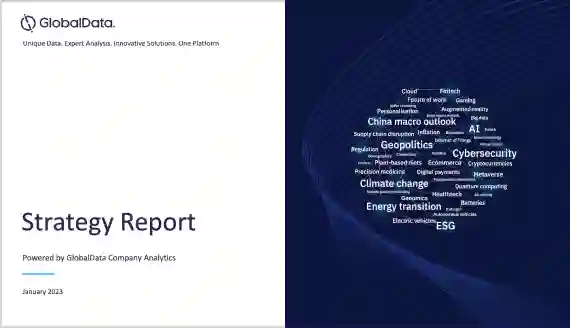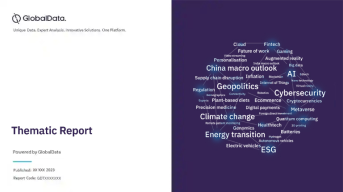ESG (Environmental, Social, and Governance) in Packaging – Thematic Research
Powered by ![]()
All the vital news, analysis, and commentary curated by our industry experts.
Citizens, governments, regulators, and the media are demanding action from corporations to address environmental, social, and governance (ESG) challenges. Social inequality, corruption, tax avoidance, and a lack of action on climate change are issues companies must address head-on in full public view. Packaging companies that fall behind the competition in ESG will see an exodus of customers moving to a more sustainable packaging provider and a drop in profits far sooner than they ever imagined.
What are the main trends shaping the ESG theme in the packaging sector?
Technology trends
The IoT describes the use of connected sensors and actuators to control and monitor the environment, the things that move within it, and the people that act within it. Packaging companies use IoT in their factories to operate with far greater efficiency and flexibility, allowing them to continuously monitor energy and water consumption. A 2018 analysis of more than 640 IoT deployments, undertaken by the World Economic Forum in collaboration with IoT Analytics, showed that 84% of existing IoT deployments address, or have the power to advance, the UN’s 17 Sustainable Development Goals (SDGs).
AI refers to software-based systems that use data inputs to make decisions on their own or help users make decisions. Within the packaging sector, companies are using AI in several ways to address ESG challenges. Packaging companies can use AI to analyze data from production machines and cooling and heating systems to identify areas to improve their efficiency. AI-powered recycling robots use computer vision (CV) and machine learning to differentiate and sort materials based on their characteristics to ensure they can re-enter the supply chain.
Blockchain is an electronic ledger of transactions that are continuously maintained in blocks of records. The ledger is jointly held and run by all participants and protected by cryptographic security. The movement of goods across the globe depends on an extraordinarily complex set of processes and a vast array of regulations. Blockchain enables companies to record information like location, quantity, date, and certification, increasing transparency and efficiency and reducing the number of counterfeit products.
Macroeconomic trends
An activist shareholder is a shareholder that uses an equity stake in a corporation to put pressure on its management. Activist shareholders are increasingly pressuring the management of packaging companies to take firmer action on ESG. BlackRock, the world’s largest asset manager, has promised to take voting action against companies it feels are not doing enough on ESG. A report by conservation group Oceana estimated that Amazon had generated 210,000 tons of plastic packaging waste in 2019.
The impact of COVID-19 on ESG has been twofold. Operationally, it increased health and safety risks for staff members often working in restricted, crowded spaces, forcing companies to develop contingency plans to minimize risks. From a consumer preference standpoint, it increased demand for product safety and traceability, heightening the need to develop and effectively communicate stringent health and safety protocols.
Anyone born between 1991 and 2005 is a member of Generation Hashtag. This demographic, which incorporates both younger Millennials and older members of Generation Z, cannot countenance a world without the internet or smartphones, and their priorities and preferences are reshaping the corporate world. Generation Hashtag makes up around one-quarter of the world’s population, and its influence will only increase over the next decade as its members continue to enter the workforce.
Regulatory trends
The UK’s Circular Economy Package (CEP) is a revised legislative framework that lays out the key steps for reducing waste and establishes a long-term pathway for waste management and recycling. The Circular Economy Package builds on the government’s landmark Resources and Waste Strategy and commits to a 65% municipal recycling rate by 2035. The regulations also target packaging specifically, which must be manufactured so that the packaging volume and weight are limited to the minimum amount to maintain the necessary level of safety, hygiene, and acceptance for the consumer.
In March 2020, the European Commission (EC) adopted a new Circular Economy Action Plan. It consists of 35 actions covering key areas like batteries and packaging waste. This essential building block forms a fundamental foundation of the European Green Deal, a set of policy initiatives by the EC with the overarching aim of making Europe climate neutral by 2050. The new action plan builds on the 2015 action plan, under which 54 actions have been delivered or are being implemented.
China’s Circular Economy Protection Law came into force in 2009 and was the first circular economy legislation in the world. The law aims to promote the development of the circular economy, improving resource utilization efficiency, protecting and improving the environment, and realizing sustainable development.
What are the ESG challenges in the packaging sector?
Environmental challenges
Packaging manufacturers are under considerable pressure to provide more environmentally sustainable packaging products from consumer goods brands, retailers, and consumers themselves. Packaging companies need to make environmental sustainability a priority – those that fail to keep pace will suffer the consequences. Companies should not view ESG as something that will damage profits. In fact, the opposite will occur, and companies that take ESG seriously will be the best performers in the market. With this in mind, companies are keen to boost their environmental credentials, making it appear that they are more sustainable than they actually are to achieve these promised benefits. This is known as greenwashing, which can be subtle and is often hard to notice.
Climate change is a global issue. Science tells us that we need to keep warming to 1.5°C degrees to avoid a climate catastrophe. The latest thinking in the climate science space suggests that we will likely fall short of this target and need to ramp up our climate efforts. Despite this consensus and broad agreement that climate change will disrupt every sector of the global economy, governmental action and global agreements such as the Paris Agreement have yet to spark enough momentum. Instead, non-governmental organizations and the private sector are stepping in.
Social challenges
Companies need to take a proactive approach when it comes to sustainability in their supply chains. Aptar is working alongside EcoVadis – a platform that allows companies to assess their suppliers’ environmental and social performance – to formally integrate social and environmental screening into its existing purchasing program. This program aims to increase transparency, identify areas for collaboration, and improve the performance of its suppliers. Aptar officially launched the program to its suppliers in March 2021 and screens companies on GHG emissions, plastics, raw materials, and social metrics.
Decision-makers need to be aware of the possible negative impacts of automating and ensure their business is taking appropriate measures to ensure that the workforce is continuously trained and upskilled. A research paper from the University of California Irvine and the State University of New York entitled Socially Responsible Automation: A Framework for Shaping the Future concluded that “humans will and should remain critical and central to the workplace of the future, controlling, complementing and augmenting the strengths of technological solutions.”
Governance challenges
The last decade has seen a sea-change in attitudes about business management. In 2019, the influential nonprofit organization Business Roundtable adopted a new Statement on the Purpose of a Corporation, signed by 181 CEOs in the US. The statement said corporate leaders have a duty to manage their companies for the benefit of customers, employees, suppliers, communities, and the environment, as well as shareholders. In other words, leaders have a responsibility to manage their companies sustainably. The graphic below shows GlobalData’s ESG framework for governance factors, broken down into the contributing factors and mitigating actions for corporate structure, risk management, corruption and bribery, and ethics.
Which are the leading companies focusing on ESG theme in packaging sector?
Leading packaging companies focused on ESG include Amcor, Ball Corp, UPM-Kymmene, SIG Combibloc, Stora Enso, Tetra Pak and Ardagh.
Market report scope
| Outlook Year | 2021 |
| Key Players | include Amcor, Ball Corp, UPM-Kymmene, SIG Combibloc, Stora Enso, Tetra Pak, Ardagh |
| Key Packaging Materials | Recycled and recyclable packaging, mono-materials, polyethylene terephthalate (PET) and high-density polyethylene (HDPE), paper and board, glass, aluminum, bio-derived plastics |
Scope
This report provides an in-depth analysis of the following:
- Both regulators and non-governmental initiatives are progressing the packaging sector towards a circular economy. This means gradually decoupling economic activity from the consumption of finite resources and designing waste out of the system. Circular economy regulations have been around for decades and are gathering significant momentum.
- According to a GlobalData survey, environmentally friendly packaging material was a key driver of purchase for 34% of respondents, 44% stated that it was nice to have but not essential, and 22% indicated that it did not affect their purchasing behavior.
- According to GlobalData’s 2019 Global Executives Survey: Plastic Packaging, Sustainability, and Disruption, 87% of respondents expected government legislation to impact plastic packaging dynamics, with 49% strongly agreeing with this expectation. Numerous initiatives and government policies are guiding the packaging sector towards a circular economy.
Reasons to Buy
- Position yourself for the future and create a holistic ESG strategy using GlobalData’s ESG framework. Assess sustainability policies, performance, and progress against GlobalData’s ESG framework. Identify and mitigate factors that contribute to negative consequences and pursue actions to improve ESG performance.
- Uncover the packaging companies excelling in ESG operations with GlobalData’s thematic scorecard. Understand competitor activity and positioning in the ESG theme with the extensive coverage of each leading company’s activity in the companies section.
- Use the trends section to identify key technology, macroeconomic, and regulatory trends shaping the ESG theme.
- Discover the key challenges to packaging companies across Environment, Social, and Governance, with company examples of mitigating actions and malpractice.
- Understand the ESG action feedback loop, a market mechanism that drives reputational and competitive advantage, incentivizing further action and drawing more participation.
Aptar
SIG Combibloc
Ball Corp
Berry Global
BlackRock
Crown Holdings
DS Smith
International Paper
O-I Glass
Pactiv Evergreen
Smurfit Kappa
Stora Enso
Tetra Pak
UPM-Kymmene
WestRock
Table of Contents
Frequently asked questions
-
Which packaging materials are winners in ESG theme?
Recycled and recyclable packaging, mono-materials, polyethylene terephthalate (PET) and high-density polyethylene (HDPE), paper and board, glass, aluminum, and bio-derived plastics are winners in ESG theme.
-
Which are the leading companies focusing on ESG theme in packaging sector?
Leading packaging companies focused on ESG include Amcor, Ball Corp, UPM-Kymmene, SIG Combibloc, Stora Enso, Tetra Pak and Ardagh.
Get in touch to find out about multi-purchase discounts
reportstore@globaldata.com
Tel +44 20 7947 2745
Every customer’s requirement is unique. With over 220,000 construction projects tracked, we can create a tailored dataset for you based on the types of projects you are looking for. Please get in touch with your specific requirements and we can send you a quote.











